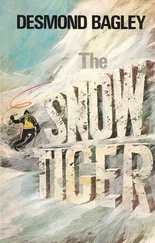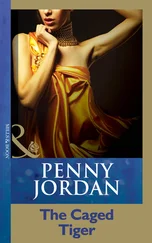A faded mural of the Lord Buddha surrounded by deer and squirrels decorated the fourth wall-it was the only wall that the teacher spared. The giant lizard the color of a half-ripe guava was sitting in front of this wall, pretending to be one of the animals at the feet of the Lord Buddha.
It turned its head to us; I saw its eyes shine.
"Is this the monster?"
The lizard turned its head this way and that, looking for an exit. Then it began banging the wall. It was no different from me; it was terrified.
"Don't kill it, Daddy-just throw it out the window, please?"
The teacher was lying in one corner of the room, reeking of booze, snoring soundly. Near him was the pot of toddy he had emptied the previous night-my father picked it up.
The lizard ran, and he ran behind it, swinging the pot of toddy at it.
"Don't kill it, Daddy-please!"
But he wouldn't listen. He kicked the cupboard, and the lizard darted out, and he chased it again, smashing everything in his way, and yelling, "Heeyaa! Heeyaa!" He pounded it with the pot of toddy until the pot broke. He smashed its neck with his fist. He stamped on its head.
The air became acrid: a stench of crushed flesh. He picked the dead lizard up and flung it out the door.
My father sat panting against the mural of the Lord Buddha surrounded by the gentle animals.
When he caught his breath, he said, "My whole life, I have been treated like a donkey. All I want is that one son of mine-at least one-should live like a man."
What it meant to live like a man was a mystery. I thought it meant being like Vijay, the bus conductor. The bus stopped for half an hour at Laxmangarh, and the passengers got off, and the conductor got down to have a cup of tea. Now, he was a man all of us who worked in that tea shop looked up to. We admired his bus-company-issue khaki uniform, his silver whistle and the red cord from which it hung down from his pocket. Everything about him said: he had made it in life.
Vijay's family were pigherds, which meant they were the lowest of the low, yet he had made it up in life. Somehow he had befriended a politician. People said he had let the politician dip his beak in his backside. Whatever he had to do, he had done: he was the first entrepreneur I knew of. Now he had a job, and a silver whistle, and when he blew it-just as the bus was leaving-all the boys in the village went crazy and ran after the bus, and banged on its sides, and begged to be taken along too. I wanted to be like Vijay-with a uniform, a paycheck, a shiny whistle with a piercing sound, and people looking at me with eyes that said, How important he looks.
Two a.m. already, Mr. Premier. I'll have to stop for tonight fairly soon. Let me put my finger on the laptop screen, and see if there is any other useful information here.
Leaving out a few inessential details…
…in the Dhaula Kuan area of New Delhi, on the night of September 2, near the ITC Maurya Sheraton hotel…
Now, this hotel, the Sheraton, is the finest in Delhi-I've never been inside, but my ex-boss, Mr. Ashok, used to do all his late-night drinking there. There's a restaurant in the basement that's supposed to be very good. You should visit it if you get the chance.
The missing man was employed as driver of a Honda City vehicle at the time of the alleged incident. In this regard a case, FIR No. 438/05, P. S. Dhaula Kuan, Delhi, has been registered. He is also believed to be in possession of a bag filled with a certain quantity of cash.
Red bag, they should have said. Without the color, the information is all but useless, isn't it? No wonder I was never spotted.
Certain quantity of cash. Open any newspaper in this country, and it's always this crap: "A certain interested party has been spreading rumors," or "A certain religious community doesn't believe in contraception." I hate that.
Seven hundred thousand rupees.
That was how much cash was stuffed into the red bag. And trust me, the police knew it too. How much this is in Chinese money, I don't know, Mr. Jiabao. But it buys ten silver Macintosh laptops from Singapore.
There's no mention of my school in the poster, sir-that's a real shame. You always ought to talk about a man's education when describing him. They should have said something like, The suspect was educated in a school with two-foot-long lizards the color of half-ripe guavas hiding in its cupboards…
If the Indian village is a paradise, then the school is a paradise within a paradise.
There was supposed to be free food at my school-a government program gave every boy three rotis, yellow daal, and pickles at lunchtime. But we never ever saw rotis, or yellow daal, or pickles, and everyone knew why: the schoolteacher had stolen our lunch money.
The teacher had a legitimate excuse to steal the money-he said he hadn't been paid his salary in six months. He was going to undertake a Gandhian protest to retrieve his missing wages-he was going to do nothing in class until his paycheck arrived in the mail. Yet he was terrified of losing his job, because though the pay of any government job in India is poor, the incidental advantages are numerous. Once, a truck came into the school with uniforms that the government had sent for us; we never saw them, but a week later they turned up for sale in the neighboring village.
No one blamed the schoolteacher for doing this. You can't expect a man in a dung heap to smell sweet. Every man in the village knew that he would have done the same in his position. Some were even proud of him, for having got away with it so cleanly.
One morning a man wearing the finest suit I had seen in my life, a blue safari suit that looked even more impressive than a bus conductor's uniform, came walking down the road that led to my school. We gathered at the door to stare at his suit. He had a cane in his hand, which he began swishing when he saw us at the door. We rushed back into the class and sat down with our books.
This was a surprise inspection.
The man in the blue safari suit-the inspector-pointed his cane at holes in the wall, or the red discolorations, while the teacher cowered by his side and said, "Sorry sir, sorry sir."
"There is no duster in this class; there are no chairs; there are no uniforms for the boys. How much money have you stolen from the school funds, you sister-fucker?"
The inspector wrote four sentences on the board and pointed his cane at a boy:
"Read."
One boy after the other stood up and blinked at the wall.
"Try Balram, sir," the teacher said. "He's the smartest of the lot. He reads well."
So I stood up, and read, "We live in a glorious land. The Lord Buddha received his enlightenment in this land. The River Ganga gives life to our plants and our animals and our people. We are grateful to God that we were born in this land."
"Good," the inspector said. "And who was the Lord Buddha?"
"An enlightened man."
"An enlightened god. "
(Oops! Thirty-six million and five-!)
The inspector made me write my name on the blackboard; then he showed me his wristwatch and asked me to read the time. He took out his wallet, removed a small photo, and asked me, "Who is this man, who is the most important man in all our lives?"
The photo was of a plump man with spiky white hair and chubby cheeks, wearing thick earrings of gold; the face glowed with intelligence and kindness.
"He's the Great Socialist."
"Good. And what is the Great Socialist's message for little children?"
I had seen the answer on the wall outside the temple: a policeman had written it one day in red paint.
"Any boy in any village can grow up to become the prime minister of India. That is his message to little children all over this land."
Читать дальше












